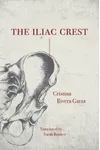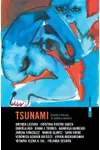Picture a Mexican storyteller whose words weave raw emotion and fierce social critique—meet Cristina Rivera Garza! This Pulitzer Prize-winning author and professor has enchanted readers with her genre-defying novels, memoirs, and poetry, tackling themes like femicide, identity, and memory. Her deeply personal memoir, Liliana’s Invincible Summer, not only honors her sister’s life but also ignites a global conversation about gender violence.
Born in Matamoros, Mexico, Rivera Garza’s work pulses with the vibrancy of her borderland roots and her academic prowess. From her haunting fiction to her advocacy for justice, she’s a literary force who challenges the status quo with every page.
The Making of Cristina Rivera Garza
Born on October 1, 1964, in Tamaulipas, near the U.S.-Mexico border, Cristina Rivera Garza grew up in a region rich with cultural crossroads. She studied sociology at the National Autonomous University of Mexico (UNAM) before earning a Ph.D. in Latin American history from the University of Houston. Her academic journey shaped her storytelling, blending historical rigor with poetic flair. Rivera Garza began writing in the 1990s, publishing poetry and short stories that caught Mexico’s literary eye. Her teaching career, spanning UNAM, UC San Diego, and now the University of Houston, where she directs a Spanish creative writing Ph.D. program, reflects her commitment to nurturing new voices.
Cristina Rivera Garza’s Unforgettable Stories
Rivera Garza’s works defy easy categorization, blending fiction, memoir, and experimental forms. Her novel Nadie me verá llorar (No One Will See Me Cry, 1999) won the Sor Juana Inés de la Cruz Prize and explores identity and madness in a Mexican asylum during the Revolution. Critics praise its raw, lyrical prose. La cresta de Ilión (The Iliac Crest, 2002) delves into gender fluidity and mystery, unsettling readers with its surreal narrative.
Her Pulitzer-winning memoir, Liliana’s Invincible Summer (2023), is a heart-wrenching tribute to her sister, murdered in 1990. Through letters, diaries, and archival work, Rivera Garza reconstructs Liliana’s life while exposing Mexico’s femicide crisis. Her latest, Death Takes Me (2025), flips the script with a female detective investigating male victims, probing language and violence. Rivera Garza’s style—poetic, provocative, and boundary-pushing—makes readers rethink societal norms.
Why Cristina Rivera Garza Matters
Rivera Garza’s impact transcends literature. Her work amplifies marginalized voices, especially women, in a world plagued by gender violence. By naming femicide and weaving it into her narratives, she’s fueled feminist movements in Mexico and beyond. Her 2020 MacArthur Fellowship and 2024 Pulitzer Prize cement her as a global literary icon. As a professor, she champions Spanish-language creativity, fostering a new generation of writers. Her experimental use of digital platforms, like blogging and Twitter “tweetnovels,” keeps her storytelling fresh and accessible.
- Born: October 1, 1964, Matamoros, Mexico
- Key Works: Nadie me verá llorar, La cresta de Ilión, Liliana’s Invincible Summer, Death Takes Me
- Awards: Pulitzer Prize (2024), MacArthur Fellowship (2020), Sor Juana Inés de la Cruz Prize (2001, 2009)
Snag Liliana’s Invincible Summer and dive into Cristina Rivera Garza’s poignant, powerful world!





